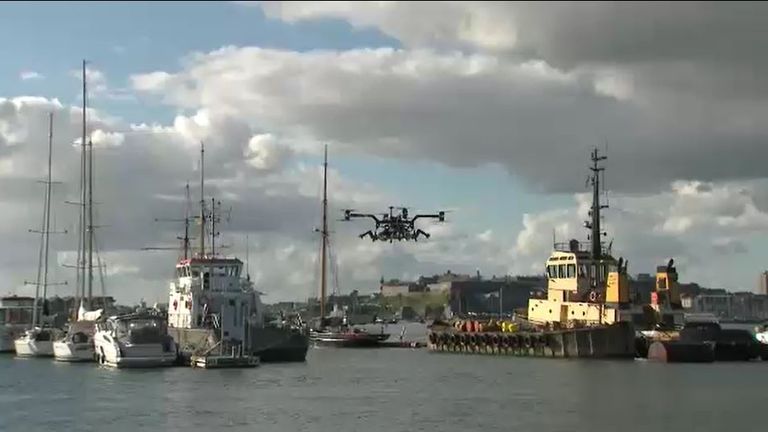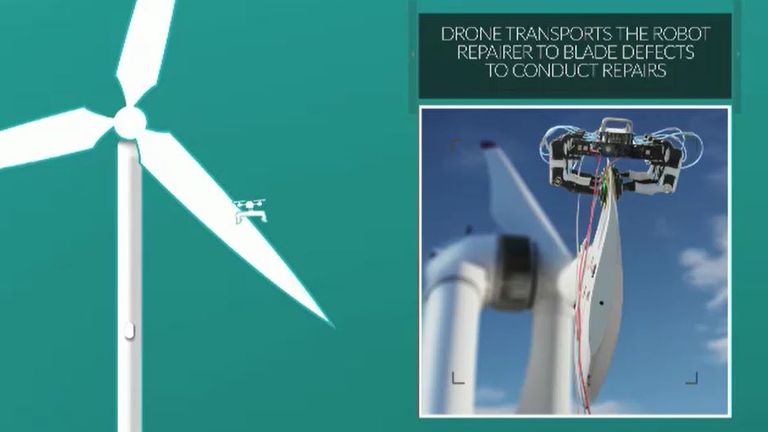Unmanned boats and drones could repair offshore wind farms and clean up plastic in the sea
Autonomous drones and unmanned boats could be used to maintain the UK’s offshore wind farms in the next five years, experts have told Sky News.
A team of scientists from the University of Bristol and French-based engineering and science firm Thales are testing technology that will eventually remove the need for humans to carry out the dangerous role.
The process involves AI (artificial intelligence) boats carrying autonomous drones out to wind turbines at sea, before they take off and land on turbine blades and carry out repairs.
Tom Richardson, from the University of Bristol who is leading the team, said: “The number of turbines we have is almost growing exponentially.
“There’s a large number out there. They’re offshore, they’re in an environment that’s really challenging, and we have to be able to repair them in the long-term to keep them generating power for us.”
It is believed the technology could be utilised by energy companies in the next five to 10 years.
The invention is timely – given the UK government’s recent announcement on wind energy.
Earlier this month, Prime Minister Boris Johnson announced that offshore wind farms will generate enough electricity to power every home in the country within 10 years.
He wants the UK to become “the world leader” in green energy, he said.
The AI boats and drones are being tested in Plymouth, which has a dedicated Smart Sound – a space where autonomous and AI sea technology can be openly tested.
Chris Wardman, who heads up the autonomous maritime department at Thales, told Sky News the move is about removing human workers from dangerous roles – not taking their jobs.
“It’s really, really important that in this type of business we’re not taking over people’s jobs, but what we’re doing is augmenting that into people’s roles and making things more efficient.
“We’re going green, using less carbon, and all of those sorts of things can be done through the use of autonomy,” he said.
Another use for the unmanned boat system developed by Thales is clearing oceans of plastic waste.
In conjunction with the University of Southampton, the project could see a fleet of between 20 to 30 robotic boats spend months in dense areas of plastic rubbish in the sea.
Professor Steve Turnock, who is working on the idea, told Sky News: “We know there are bits of ocean where plastic comes together, but it’s still spread over a large area so with these robot vehicles, we can spread them across large areas and use relatively few or no people to get them to operate together and face the challenge of removing these plastics from oceans.”
He said having self-powered unmanned boats cleaning oceans could be just a few years away and people were already trialling new systems.
“In five to 10 years I can see this being part of the everyday. Not just in ocean plastics, but in ocean exploration,” he said.
“It’s all about the economics. If you look at the cost of operating at sea, they need to be large enough to travel fast enough to get there.
“And then travelling slowly around the space. All those people will be on the vessel – you’ll be paying them, etc.
“So if you have a smaller craft, but more of them working across a larger area all the time, that will be more cost effective.”
Source: Read Full Article




